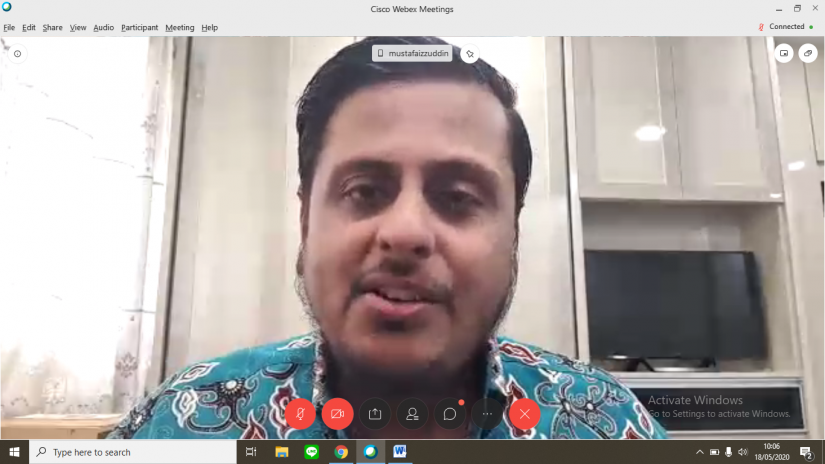
“We can see how nations are helping one another. For example, there was India that helped to give medical supplies to 15 countries including Myanmar and Philippine. There was also China that conducts ‘mask diplomacy’ by giving medical supply to countries fighting the pandemic,” Mustofa elaborated.
“In ASEAN, we have countries that have a varying economic standard, bureaucratic capacity, health care, and characteristic of citizens. In Singapore, we have a higher case compared to Indonesia. This is because our region is filled by more citizens. Hence, the possibility for the virus to spread is higher and quicker. However, by conducting aggressive mass testing and a tight physical distancing measures, the pandemic can be controlled,” Mustofa said.
“Indonesia have their own complexity. A lot of the governance in Indonesia is decentralized. Hence there needs to be a relationship based on trust in the society so that the country can rise and take responsibility together,” he said.
“Compared to other countries, Malaysia is in the midst of a political crisis. They control Covid-19 later than any other country. Brunei Darussalam as the least populated country have a lower death rate. There is only 141 cases and one death,” He elaborated further.
Mustofa explained the importance of religion in tackling Covid-19 which coincides with the holy month of Ramadhan. “In Singapore, the message given by the religious leaders to not gather in religious places is very powerful. The message underlines the need to adjust the method of our prayer in the middle of this crisis. Moreover, religious leaders said that we can be a good Muslim and a good citizen. There was also some interfaith messages that is also as powerful from various religious leaders that urges citizens to stay home,” Mustofa said.
In the economic realm, China as ASEAN’s biggest trade partner realized that ASEAN have a dependence to China and vice versa. That leads China to conduct “mask diplomacy” and to cooperate with the UN to do some investigations about Corona which originated from China. This actions changes the perspective towards China from some countries.
In the future, regularly keeping our cleanliness, doing physical distancing, and using technology will be a challenge, especially when applied to university life. “The challenge faced by universities is how to create virtual activity through technologies that feels like live teaching. It is a challenge on how to create a balanced study.” With that remark, Mustofa ended the discussion.
